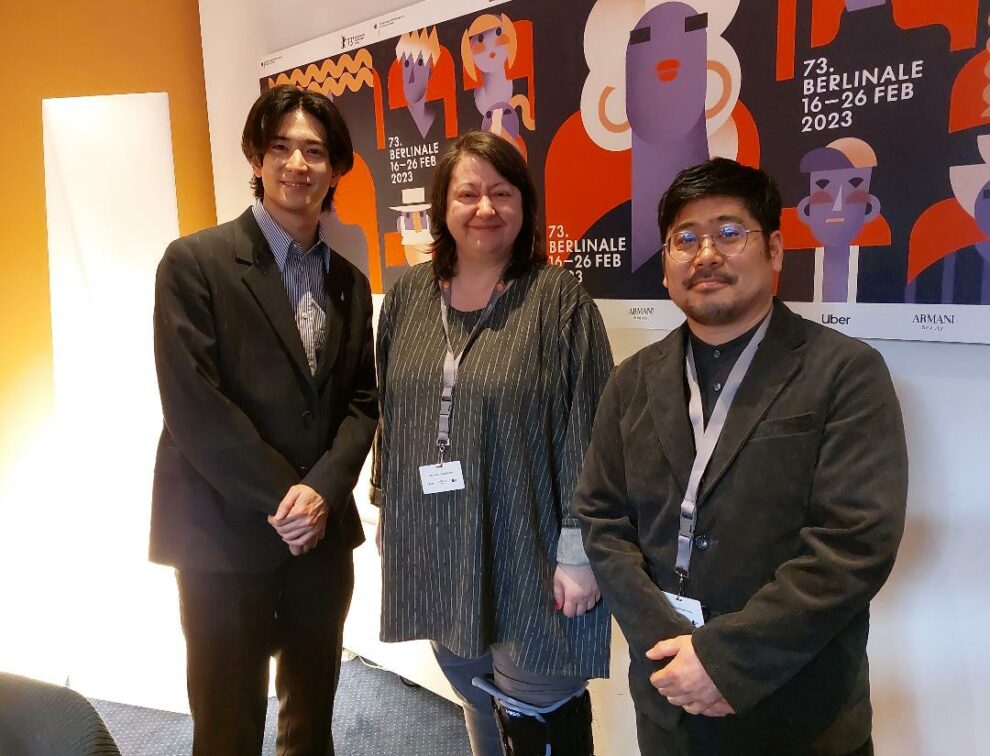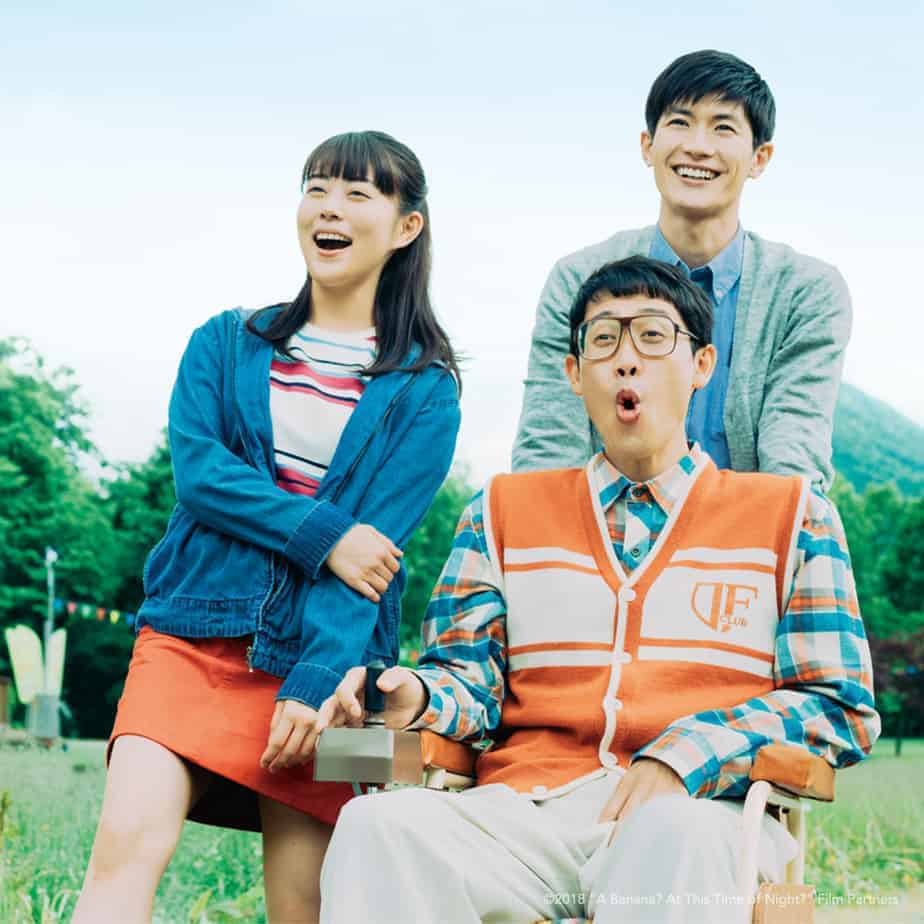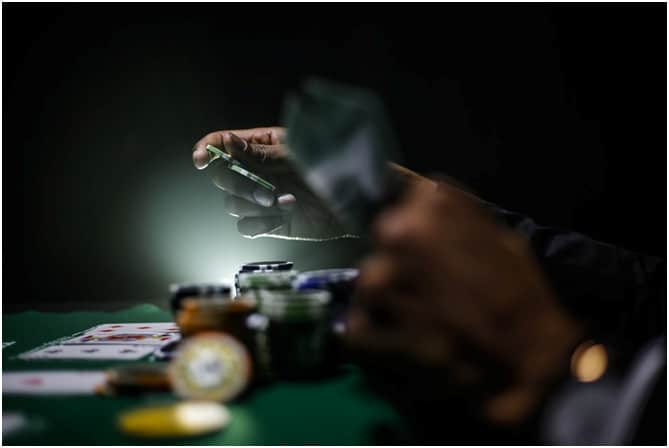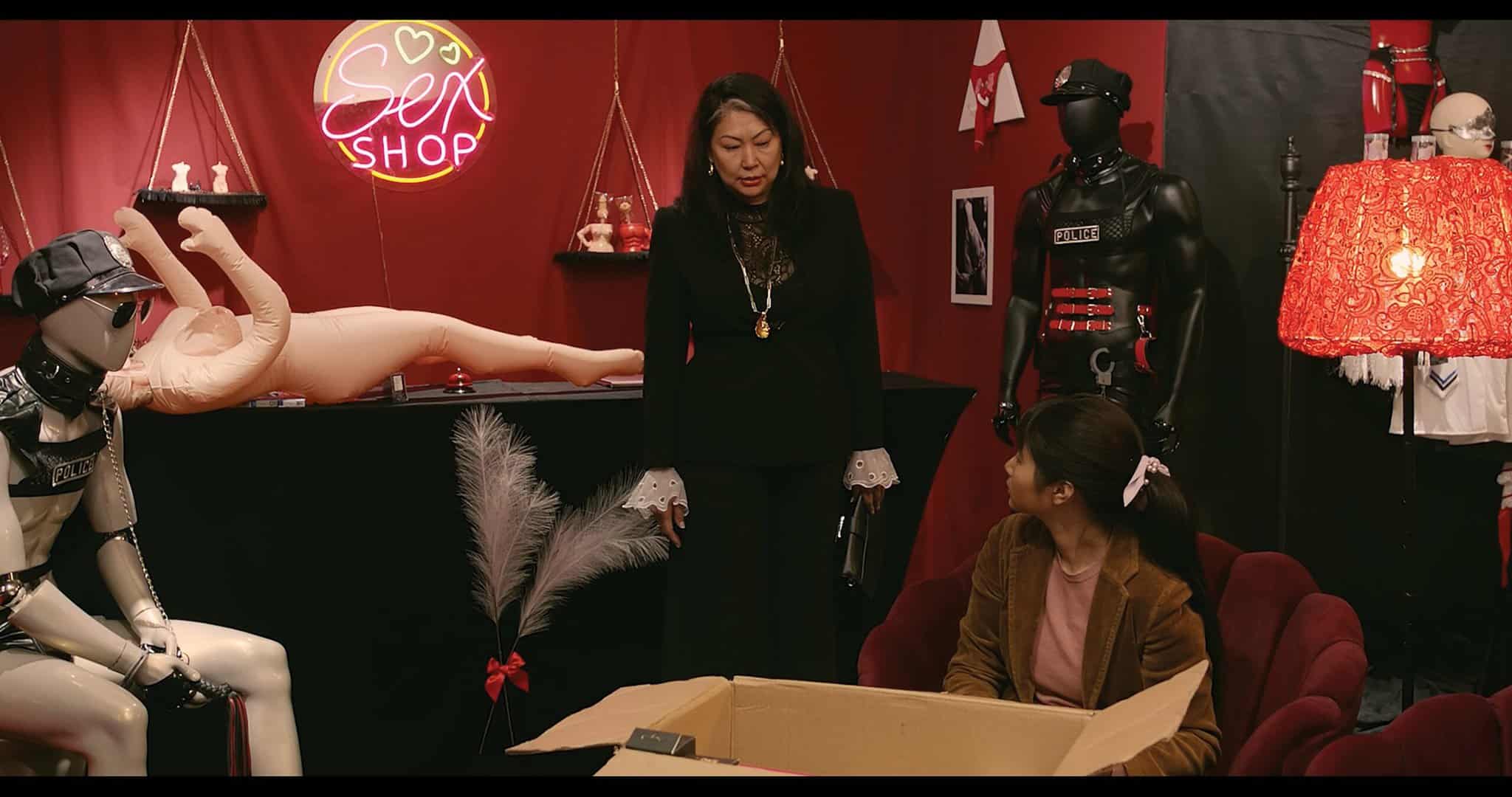Yuto Nakajima admits that is a great feeling to be roaming free on the streets of a city that doesn't recognize his face. In Japan he wouldn't last a meter without being surrounded by screaming fans. As the member of Hey! Say! JUMP band, and as a famous TV personality, he has long forgotten what a quiet life is. It is therefore a great discovery to see him in a challenging role which is the one and only in Kazuyoshi Kumakiri's cynical thriller gone horror, about a seemingly nice young man in distress who gradually shows his real face, although the face isn't his at all.
We met with the Japanese director and his star in the Berlinale Palast, to discuss the wonderfully unpredictable movie “#Manhole”, the difficulties of shooting in a narrow space and the challenge of turning a one man show into a pulse-racing show.
#Manhole is screening at Berlinale

The first question goes to both of you. What attracted you to Michitaka Okada's script?
KK: What drew me to the screenplay was to have this small, limited space and to use social media as a way of connecting with the outside world, with our present culture and society. I felt that this was something new that I could create, which is why I was attracted to it.
YN: As the director mentioned, to have this very limited amount of space, but still doing everything possible not to bore the viewer, the question was how to keep their attention there. I saw the role as a great challenge, and the character of Kawamura in this movie is very different from any other role that I ever played before. I really enjoyed slipping into it.
What was older, the chicken or the egg? Did you have the idea that was then penned by the scriptwriter, or was it his original idea which you found so good that you absolutely wanted to shoot the film based on it?
KK: Oh, it was totally Michitaka Okada's thing. He is creating this mysterious storylie that tricks you all the time, and that you can't foresee.
I have a question regarding the camera movement in a limited space. How did you work with this type of setting?
KK: Well, we were shooting in a storage where it was possible to take off the walls. If we needed to move the camera, one wall would be slid away, and the staff member would have to put it back on time so that we wouldn't stop the scene once the gaze was back on the original spot. Everything was analogue. Without this type of setting we would lose the claustrophobic feel, and since I was strongly concentrating on the character we had to have a ‘no-way-out' credibility.
The first indication that Kawamura might not be the likeable guy who was introduced as such in the movie, is when he starts pretending to be a teenage girl in trouble. Was that the alert deliberately given to the viewer to prepare them for something really bad?
KK: Yes, it's his cleverness in a way and also his dark side, but also the easiness with which he takes another person's face. That is a very good preparation for what is coming.
Check the review of the film
Mr. Yuto, this is the best performance you ever delivered. When you were presented with the script, considering the type of roles you played before, were you unsure if this would be something for you or did you simply want to try something completely different?
YN: What I like about Kawamura is that he has many faces and he is extreme in expressing his emotions. Through his transformations, you always get something unexpected. I love the fact that many people will watch the film, see the red flags flying and realize that the person you think is nice can actually be a complete ***hole. A monster. I love the sarcasm of his character build-up. The stages of his change are well written, and shockingly surprising, so that was quite a challenge. We discussed a lot how I should approach the role, and how to show the extreme side of his personality. I couldn't have done it without Mr. Kumakiri's clear ideas about how it is supposed to look like. He brought out the best in my performance. That is why. Actually, although I had to pull off a very difficult role in that tight space, his advices made it easier.
KK: And also what might have helped, we were shooting the film in chronological order, strictly according to the screenplay. In that sense, it was easier to enhance the emotions and to gradually go through transformations.
Did you intend to use genre tropes from the beginning, or was it something that ensued spontaneously?
KK: It wasn't meant to be a horror film, more like a sarcastic thriller with black humor. Only afterwards did I realize that many people perceive #Manhole as a creepy horror, which is fine because I really like a good horror movie.
YN: Well, I must say that spiders and some other scary creatures were my big co-ctars.
Working with one actor only, and relying on his talent to make a film dynamic presents many challenges.
KK: I was only able to concentrate on him, and that gave enough quality to the movie, so it was both challenging and easy.
Did you have a very specific idea about the look of the film, or did you put complete trust in the hands of your DoP Yuta Tsukinaga?
Yes. We did discuss the visuals in detail before we started shooting, and we made a lot of camera tests. What was also challenging was to make a full-length movie in almost complete darkness. So the question was how to make the darkness visible, so to speak. So, we played with the blue from the moon, and the greenish tones coming from the falling rain, and also this kind of shady, tilted look that came after that.
Social media plays a strong role in your movie, which is funny because you, according to an interview you gave some time ago, don't even as much as watch television. Have you maybe gone ‘modern'?
Well, it's not that I am not interested in social media, it's just that I don't personally need it as much. But it was interesting to observe my younger colleagues on the set, reacting to the chaos social media can create. That is what I wanted to bring on screen. Otherwise, I only watch baseball on television, but now that Nakajima was in my film I also ocasionally watch the things he is in on TV:
You are a big star in Japan, so how does it feel like to be almost incognito here in Berlin?
It is fantastic, because in Japan people recognize me on the street. I am a pop idol to many. But now, I am here as an actor, and I am happy to skip on that kind of attention. It is different. People recognize my acting abilities, and not me. So, walking around the city is enjoyable. Only sometimes someone asks me about an autograph.














